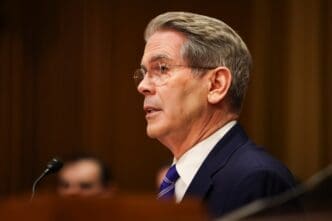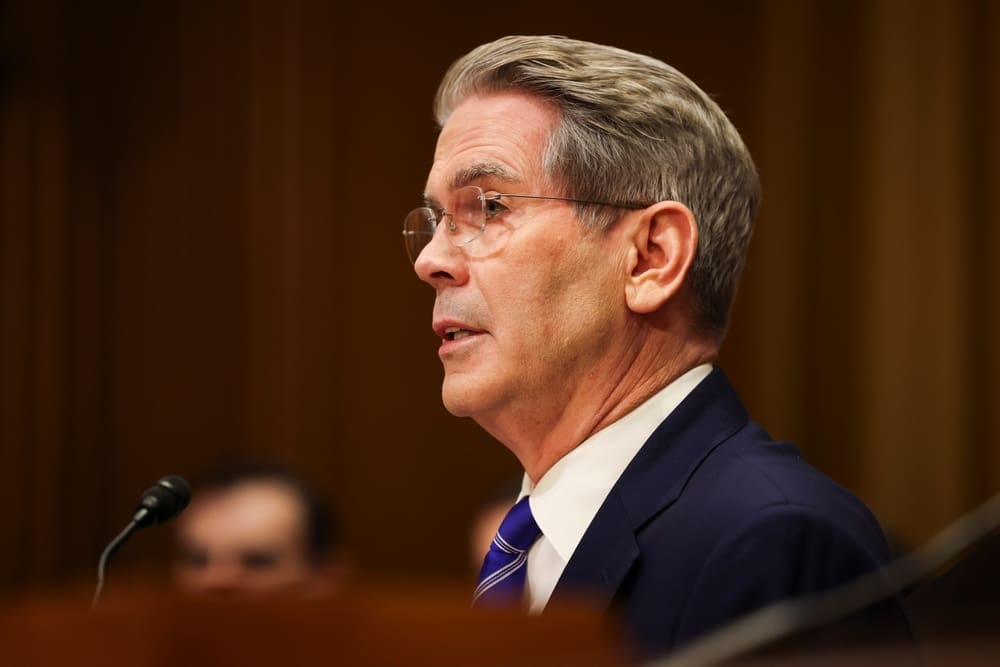Concerns are mounting over a potential economic downturn in the United States, with opinions diverging sharply within the Trump administration. Last week, Wall Street experienced a significant dip after President Donald Trump suggested that a recession might not be off the table, advising Americans to brace for “a period of transition” in the economy. In response, administration officials have been working to calm investor fears.
Commerce Secretary Howard Lutnick expressed confidence on NBC’s “Meet the Press,” stating, “Donald Trump is bringing growth to America. I would never bet on recession. No chance.” Conversely, Treasury Secretary Scott Bessent offered a more cautious perspective, acknowledging on the same program that “there are no guarantees” against a recession. In a follow-up interview with Fox Business, Bessent reiterated, “I can’t guarantee anything… But what I can guarantee you is that there is no reason we need to have a recession.” This stance contrasts with Bessent’s earlier comments, where he mentioned a “detox period” in the economy, though he later denied it implied an impending recession.
The speculation over an economic slowdown has intensified due to President Trump’s tariff threats and newly implemented tariffs. Former Treasury Secretary Larry Summers, speaking to CNN, estimated a 50% chance of a recession, noting that the risk “is rising every day.” Despite a slight market recovery this week, Summers maintained his forecast, citing ongoing “policy uncertainty” and reduced consumer spending.
JPMorgan economists recently increased their recession probability forecast to 40%, up by ten percentage points since earlier this year. They attribute this change to the impact of heightened tariffs, which they believe could significantly hinder business activity, potentially tipping both the US and global economies into recession. Surveys have revealed that businesses are postponing investments and experiencing revenue drops, partly due to tariffs. Moreover, consumer spending, a crucial component of US GDP, appears to be weakening with unexpected declines in recent retail sales figures.
The Bottom Line
The contrasting views within the Trump administration highlight the uncertainty facing the US economy. While some officials express optimism, the potential for a recession remains a concern for investors and consumers alike. The fluctuating economic landscape could impact everyday Americans by influencing job security, consumer confidence, and spending habits.
If a recession does occur, it could lead to tighter financial conditions for households, affecting everything from employment to mortgage rates. Those in industries sensitive to economic cycles, such as manufacturing and retail, may face heightened job instability. Meanwhile, consumer spending trends could shift, impacting businesses of all sizes.
As policymakers and economists navigate these challenges, it is essential for individuals and businesses to stay informed and consider strategies to mitigate potential economic risks. The evolving situation underscores the importance of financial preparedness and adaptive planning in uncertain times.














